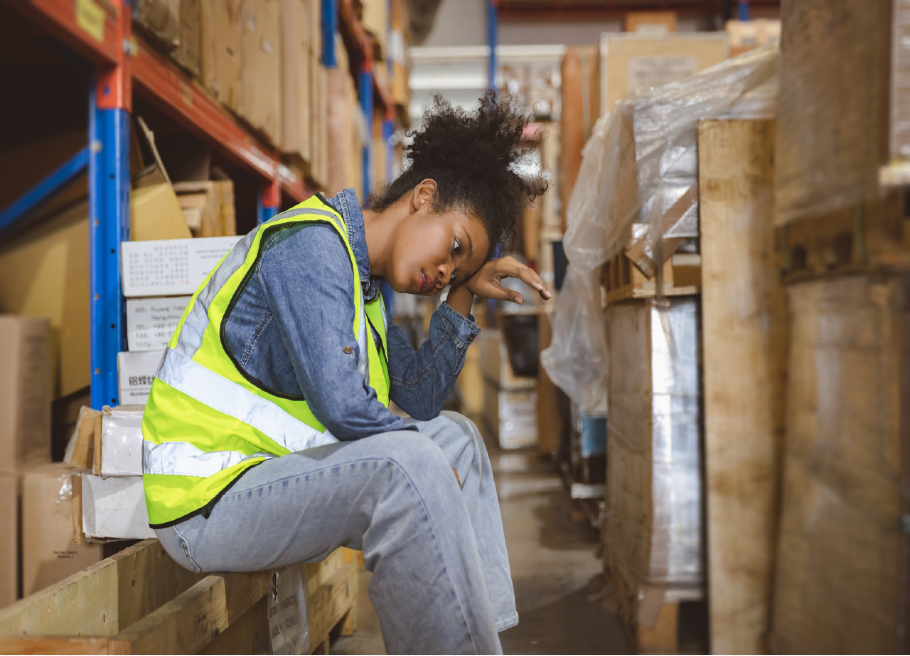Beyond Recall: The Cost of Food Safety Failures and the Value of Preventive Controls
In the fast-paced world of food manufacturing, ensuring the safety of the products that reach consumers is critical. Food safety incidents not only jeopardize public health but can also have severe financial and reputational consequences for companies. This article explores the true cost of food safety failures and underscores the vital role of preventive controls in mitigating these risks.
The Price of Food Safety Failures
- Recalls and Loss of Product
One of the most immediate and obvious costs of a food safety failure is the need for a product recall. When a contaminated or unsafe product reaches the market, it must be swiftly removed to prevent harm to consumers. This process involves not only the retrieval of affected products but also the disposal of these items, leading to significant financial losses.
According to an industry study by the Food Marketing Institute and the Grocery Manufacturers Association, the estimated costs of a food recall can average up to more than $10 million US dollars.
- Legal Liabilities
Preventive controls are not just a regulatory requirement; they are a strategic investment in safeguarding both public health and a company’s future success.
Food safety failures can result in costly legal battles. Companies may face lawsuits from consumers who have been harmed by their products, as well as regulatory fines and penalties for non-compliance with safety standards. Legal expenses can quickly spiral out of control, draining a company’s resources.
One food safety failure in 2008 and 2009 involved the Peanut Corporation of America (PCA) where former CEO Stewart Parnell was sentenced to 28 years in prison along with his brother, Michael Parnell, which was significant as it was the first jail time sentence involving foodborne illness.
- Reputational Damage
Perhaps the most insidious cost of a food safety failure is the damage to a company’s reputation. Consumer trust, once lost, can be challenging to regain. Negative publicity, social media backlash, and news headlines about a safety incident can tarnish a brand’s image for years, impacting sales and market share.
The Value of Preventive Controls
Preventive controls are a proactive approach to food safety that aim to identify and mitigate potential hazards before they lead to failures.
By investing in preventive controls, companies can protect their bottom line and reputation. Here’s how:
- Reducing the Risk of Recalls
Preventive controls, such as Hazard Analysis and Critical Control Points (HACCP) and the Food Safety Modernization Act (FSMA) requirements, help companies identify potential hazards in their processes.
Most food manufacturers require an employee to have a PCQI (Preventive Controls Qualified Individual) to oversee and develop safety plans for their company or facility. The FDA notes that if there are no exemptions that apply to your facility, it is a requirement to have a PCQI implement your facility’s food safety plans. To obtain PCQI training, according to the FDA, this involves completing training in the “application of risk-based preventive controls at least equivalent to that received under a standardized curriculum recognized as adequate by FDA or be otherwise qualified through job experience to develop and apply a food safety system.”
By implementing robust controls and monitoring systems, they can significantly reduce the likelihood of producing contaminated products.
- Compliance with Regulations
Preventive controls are not just good practice; they are often required by food safety regulations. Companies that proactively comply with these regulations are less likely to face fines and penalties. Moreover, compliance demonstrates a commitment to food safety that can improve relationships with regulators.
Regular auditing and inspecting practices can also control risks and ensure that companies are following current standards and regulations.
- Safeguarding Reputation
The most valuable asset a food company possesses is its reputation. Preventive controls not only protect consumers but also bolster a company’s image as a responsible and trustworthy producer. A strong commitment to food safety can even be used as a marketing advantage, attracting consumers who prioritize safety.
Conclusion
The cost of food safety failures extends far beyond the immediate financial losses of recalls and legal battles. It includes the erosion of consumer trust and brand reputation, which can have long-lasting and far-reaching consequences. Preventive controls are not just a regulatory requirement; they are a strategic investment in safeguarding both public health and a company’s future success.
In a competitive market where consumer expectations for safety are high, companies that prioritize preventive controls demonstrate a commitment to excellence that sets them apart. The value of preventing food safety failures cannot be overstated, making it essential for food manufacturers to invest in robust systems and a culture of safety. By doing so, they can protect their customers, their finances, and their reputations in the long run.
Food safety is not just a legal obligation; it’s a moral and business imperative. In the end, the cost of prevention pales in comparison to the cost of failure.

-
 FeaturedRisk management
The Cost of a Breach: What a Cyberattack Could Mean for Food Safety Recalls
FeaturedRisk management
The Cost of a Breach: What a Cyberattack Could Mean for Food Safety Recalls
-
 FeaturedRisk management
Securing the Food Chain: How ISO/IEC 27001 Strengthens Cybersecurity
FeaturedRisk management
Securing the Food Chain: How ISO/IEC 27001 Strengthens Cybersecurity
-
 FeaturedRisk management
Revolutionizing Food Safety Training: Breaking Out of the “Check-the-Box” Mentality
FeaturedRisk management
Revolutionizing Food Safety Training: Breaking Out of the “Check-the-Box” Mentality
-
 GFSI Standards
GFSI 2025: Building Trust, Tech-Forward Solutions, and Global Unity in Food Safety
GFSI Standards
GFSI 2025: Building Trust, Tech-Forward Solutions, and Global Unity in Food Safety
-
 FeaturedFood Safety
Integrated Pest Management: Strategies to Protect Your Brand’s Reputation
FeaturedFood Safety
Integrated Pest Management: Strategies to Protect Your Brand’s Reputation
-
 FeaturedFood Safety Culture & Training
No Open Door Policy: Challenges That Impact Pest Control in Food Processing Plants
FeaturedFood Safety Culture & Training
No Open Door Policy: Challenges That Impact Pest Control in Food Processing Plants




